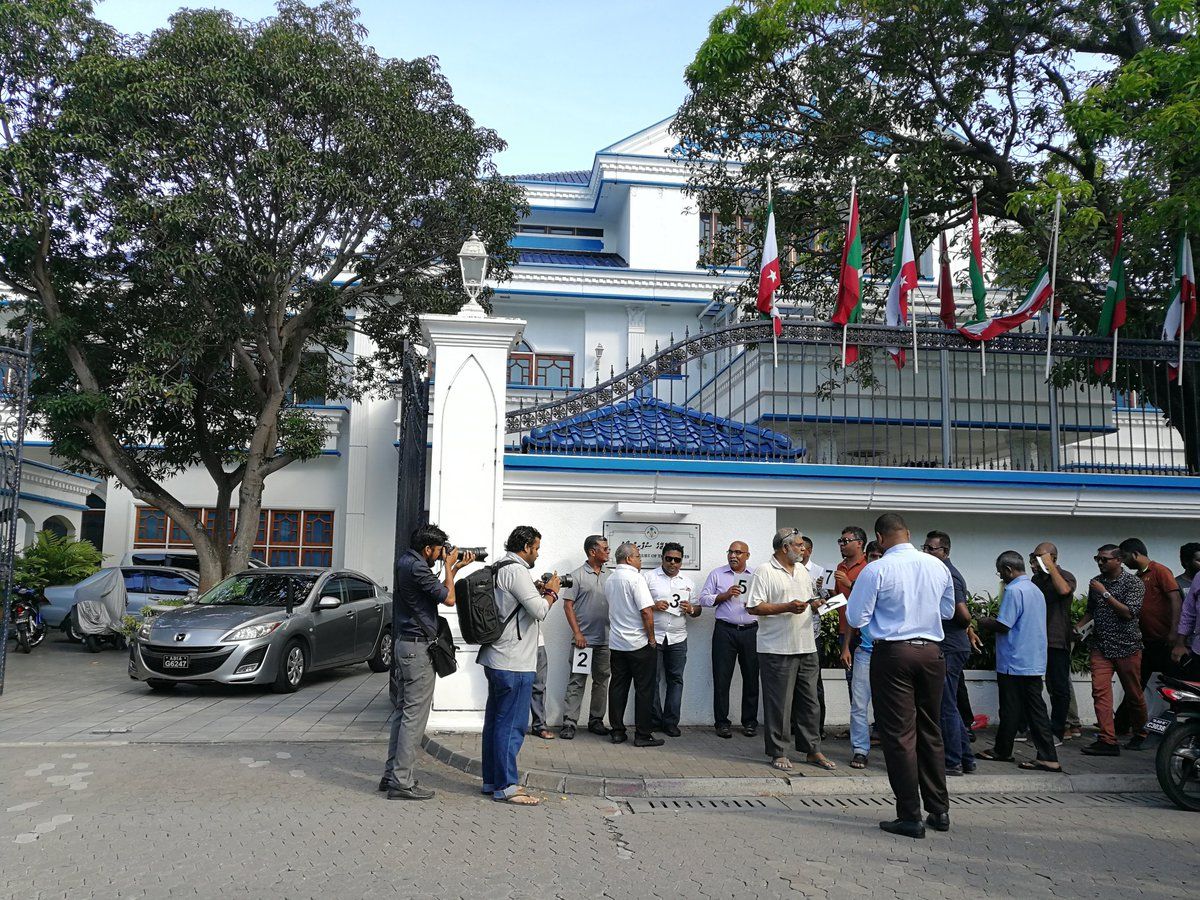Verdict looms in Maldives election challenge
The Supreme Court was undecided on hearing from secret witnesses.

15 Oct 2018, 09:00
The Supreme Court inched closer Monday to a decision on President Abdulla Yameen’s petition to annul the September 23 election.
As hearings entered its second day amid growing public anxiety, lawyers sparred over secret witnesses who would confess to an alleged conspiracy with Elections Commission chief Ahmed Shareef to commit voter fraud.
Chief Justice Dr Ahmed Abdulla Didi announced the court would decide whether to hear their testimony at a final hearing scheduled for 10:30am Tuesday.
During the four-hour hearing, the president’s lawyer Abbas Shareef argued the three witnesses could face serious threats if their identities were revealed. Their story was powerful enough for the justices to allow anonymised testimony, he said.
Become a member
Get full access to our archive and personalise your experience.
Already a member?
Discussion
No comments yet. Be the first to share your thoughts!
No comments yet. Be the first to join the conversation!
Join the Conversation
Sign in to share your thoughts under an alias and take part in the discussion. Independent journalism thrives on open, respectful debate — your voice matters.




